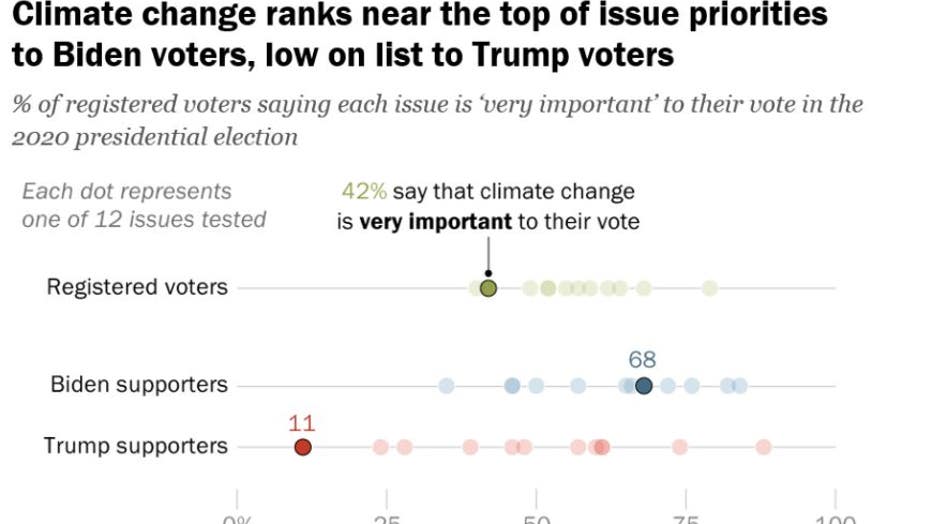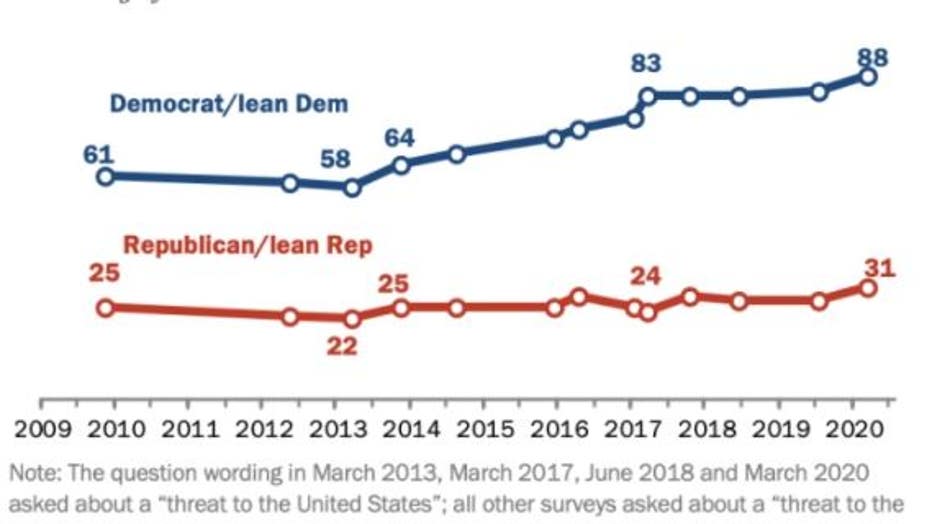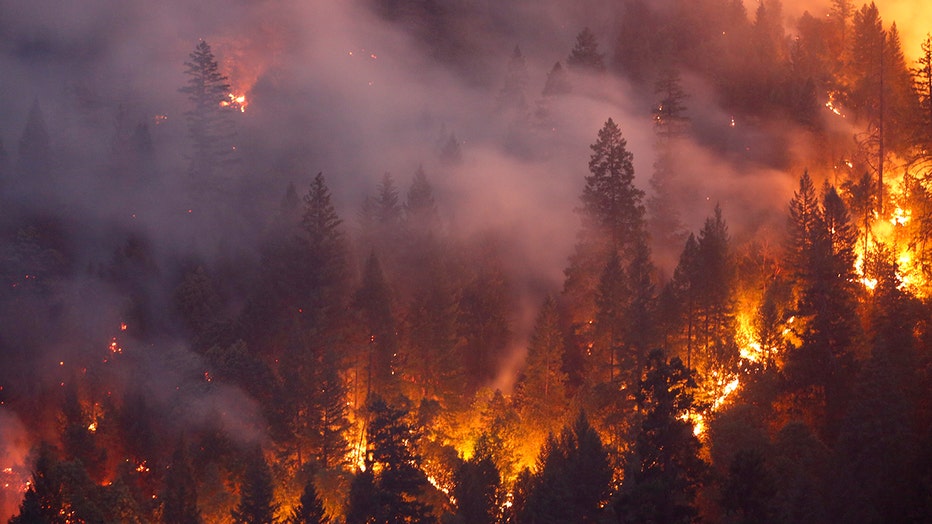68% of voters say climate change will be ‘important issue’ in their 2020 election decision
LOS ANGELES - As Election Day approaches, a new survey conducted by Pew Research Center shows that the issue of climate change is top of mind for many Americans.
The survey, conducted July 27-Aug. 2, found that registered voters in the United States said climate change will be a very (42%) or somewhat (26%) important issue in making their decision about whom to vote for in the presidential election.

Percent of registered voters saying each issue is 'very important' to their vote in 2020 presidential election
Furthermore, data gathered by Pew Research Center showed that the share of Americans who said global climate change was a major threat to the well-being of the United States grew from 44% in 2009 to 60% in 2020. The increases were concentrated mainly among Democrats.
RELATED: The Northern Hemisphere officially had its hottest summer on record, NOAA says
For example, the survey found nearly 7-in-10 Joe Biden voters (68%) said climate change was very important to their vote. By contrast, only 11% of Donald Trump supporters said the same. In fact, climate change ranked last, out of 12 issues tested in the survey, for Trump supporters.

Percent of U.S. adults who say global climate change is a major threat to the well-being of the United States
Still, climate change trailed behind other issues including the economy, health care and the coronavirus outbreak among voters who said climate change was “very important” to their vote. For Biden voters, climate change ranked ahead of issues including foreign policy and violent crime.
The survey also found that climate change ranked higher with White (71%) and Hispanic (75%) Biden voters, rather than Black (54%) Biden voters.
Among Trump supporters, women as well as Millennials and Gen Zers were more likely than men and older supporters to say that climate change was important to their vote.
RELATED: Climate change poses ‘major risk’ to US financial system, federal report warns
The new survey comes just weeks ahead of the 2020 presidential election and on the heels of significant weather events across the country, including record-earliest named storms in the Atlantic Ocean to wildfires in the West.
According to scientists at NOAA’s National Center for Environmental Information, the three-month season from June through August 2020 was the Northern Hemisphere’s hottest meteorological summer, surpassing 2019 and 2016, which were previously tied for the hottest.
A new United Nations report found that the world is getting closer to passing a temperature limit set by global leaders five years ago and may exceed it in the next decade or so.

Forest burns in the Carr Fire on July 30, 2018 west of Redding, California. (Terray Sylvester/Getty Images)
If nothing is done to combat climate change, the Commodity Futures Trading Commission (CFTC) warns it will have costly effects on the economy in the future. But it remains uncertain whether the federal government will address or enact any of the recommendations posed by the CFTC.
RELATED: Joe Biden says recent extreme weather, fires underscore urgent need to address climate change
Last month, Trump and Biden focused their presidential battle on the wildfires that scorched the West Coast.
Trump met with fire officials in California, while Biden made remarks stating the urgent need to address climate change.
“This is another crisis, another crisis he [Trump] won't take responsibility for,” Biden said. “If you give a climate denier four more years in the White House, why would we be surprised that we have more America ablaze?”
Biden released a $2 trillion plan in July to boost investment in clean energy and stop all climate-damaging emissions from U.S. power plants by 2035.
During Trump’s visit to California, the state’s natural resources secretary, Wade Crowfoot, discussed the central role of climate change in regards to the wildfires. Trump dismissed Crowfoot’s remarks, saying, “Well, I don't think science knows, actually.”
But during the vice presidential debate between Vice President Mike Pence and California Sen. Kamala Harris, Pence said, “With regard to climate change, the climate is changing. This issue is what’s the cause, what do we do about it. Trump has made it clear that we’re going to continue to listen to science.”

